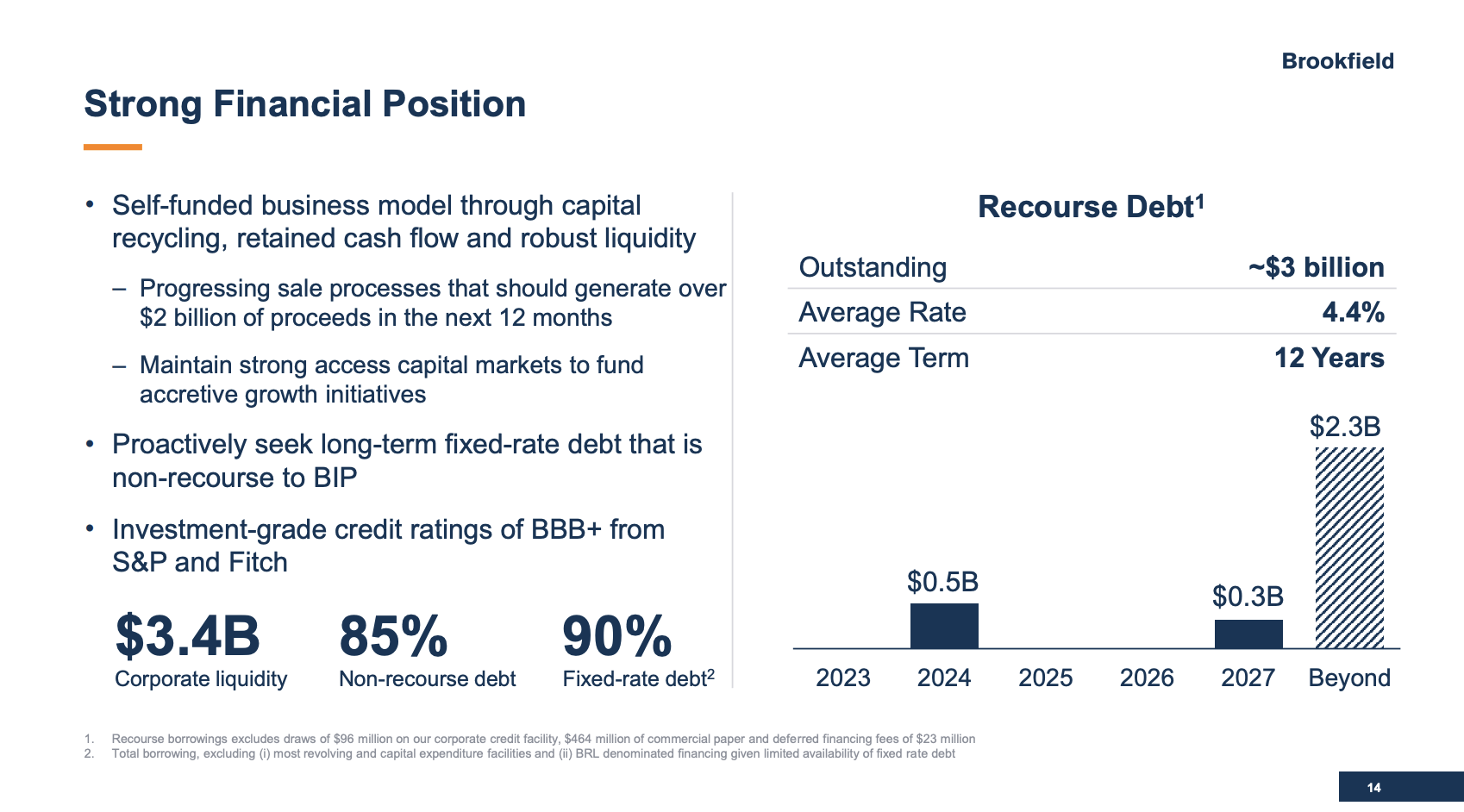Understanding The Great Decoupling: A Comprehensive Guide

Table of Contents
Defining the Great Decoupling
The Great Decoupling refers to the ongoing separation of global supply chains and the reduction of economic interdependence between nations, particularly between major economic powers. It's a significant shift away from the hyper-globalization witnessed in the latter half of the 20th century. It's crucial to differentiate decoupling from fragmentation; while both involve a separation of economic activities, decoupling implies a more deliberate and strategic disengagement, often driven by geopolitical factors, while fragmentation can be more organically driven by efficiency and cost considerations. Key players involved include the United States, China, and the European Union, each navigating this complex landscape with distinct strategies.
- Examples of Decoupling in Specific Industries: The technology sector, particularly semiconductor manufacturing, is experiencing significant decoupling, with efforts underway to diversify production away from reliance on single sources like Taiwan. Similarly, the manufacturing sector is seeing a resurgence of "reshoring" in certain countries.
- Different Levels of Decoupling: Decoupling can range from complete separation, where nations aim for self-sufficiency in critical industries, to partial decoupling, where diversification of supply sources and partners is pursued to reduce reliance on any single country.
- Geographic Aspects of Decoupling: The Great Decoupling is fostering the rise of regional economic blocs and supply chains, with a focus on strengthening intra-regional trade and investment. This is particularly visible in Asia, North America, and Europe.
Drivers of the Great Decoupling
Several factors are fueling the Great Decoupling. Geopolitical tensions, particularly the US-China trade war and the Russia-Ukraine conflict, have significantly accelerated this process. Technological advancements, including automation and artificial intelligence, allow for more localized production and reduce reliance on global supply chains. Growing climate change concerns and a push for greater sustainability are also prompting businesses and governments to prioritize shorter, more localized supply chains, reducing carbon footprints. Finally, domestic policy shifts towards protectionism and reshoring in various countries further contribute to this trend.
- Specific Geopolitical Events: The imposition of tariffs and trade restrictions between the US and China has significantly impacted global supply chains, forcing businesses to explore alternative sourcing options.
- Technological Innovations: Automation and AI-powered technologies are facilitating the automation of manufacturing processes, enabling companies to bring production closer to home.
- Regulations Promoting Sustainable Production: Government regulations aimed at reducing carbon emissions and promoting sustainable practices are incentivizing companies to invest in more localized, environmentally friendly supply chains.
Economic Implications of the Great Decoupling
The Great Decoupling has profound economic implications. Global trade and investment flows are likely to be restructured, impacting economic growth in various regions. Inflationary pressures could increase due to supply chain disruptions and higher transportation costs. Supply chain resilience will become a critical concern, necessitating diversification and robust risk management strategies. Furthermore, employment and wages could be affected, with potential gains in some regions offset by losses in others.
- Potential Benefits of Decoupling: Increased national security through reduced reliance on foreign suppliers, job creation in domestic manufacturing and other sectors, and enhanced resilience to global shocks are potential upsides.
- Potential Drawbacks of Decoupling: Higher production costs, reduced efficiency due to longer and more complex supply chains, and decreased overall global economic growth are potential downsides.
- Economic Modeling Predictions: Various economic models predict diverse outcomes, ranging from modest negative impacts to more significant disruptions depending on the pace and scope of decoupling.
Future Scenarios and Adapting to the Great Decoupling
The future of globalization in the face of the Great Decoupling is uncertain. Several scenarios are possible, ranging from a complete fragmentation of global supply chains to a more regionalized yet interconnected system. Businesses must adapt by diversifying their supply chains, building greater resilience, and focusing on regional partnerships. International cooperation and multilateral agreements will play a crucial role in mitigating negative impacts and fostering a more stable and sustainable global economic order. Supply chain diversification and resilience are no longer optional but essential for survival in this new era.
- Examples of Successful Adaptation Strategies: Companies successfully adapting are focusing on near-shoring (moving production to nearby countries) and developing flexible supply chains capable of adapting to disruptions.
- Policy Recommendations for Governments: Governments can encourage reshoring through tax incentives, investment in infrastructure, and skills development programs. Promoting regional trade agreements and fostering international cooperation are also crucial.
- Potential Opportunities from Regionalization: Regionalization offers opportunities for businesses to tap into local markets and build stronger relationships with regional partners, leading to innovation and economic growth within specific regions.
Conclusion
The Great Decoupling is a multifaceted phenomenon driven by geopolitical tensions, technological advancements, sustainability concerns, and policy shifts. Its implications for global trade, investment, and economic growth are profound. Understanding its drivers and potential consequences is crucial for businesses, governments, and individuals. The future likely involves a more regionalized and resilient global economy. Understanding the Great Decoupling is crucial for navigating the evolving global economic landscape. Stay informed about this transformative phenomenon and prepare your business for the future by exploring further resources on [link to relevant resources].

Featured Posts
-
 El Ascenso Del Real Betis Un Equipo Historico
May 08, 2025
El Ascenso Del Real Betis Un Equipo Historico
May 08, 2025 -
 Twins Sweep Angels As Hitters Struggle With 13 More Strikeouts
May 08, 2025
Twins Sweep Angels As Hitters Struggle With 13 More Strikeouts
May 08, 2025 -
 Crypto News How To Identify Reliable And Trustworthy Sources
May 08, 2025
Crypto News How To Identify Reliable And Trustworthy Sources
May 08, 2025 -
 Lotto Plus And Lotto Draw Results 02 04 2025
May 08, 2025
Lotto Plus And Lotto Draw Results 02 04 2025
May 08, 2025 -
 Market Dislocation Fuels Brookfields Opportunistic Investment Strategy
May 08, 2025
Market Dislocation Fuels Brookfields Opportunistic Investment Strategy
May 08, 2025
